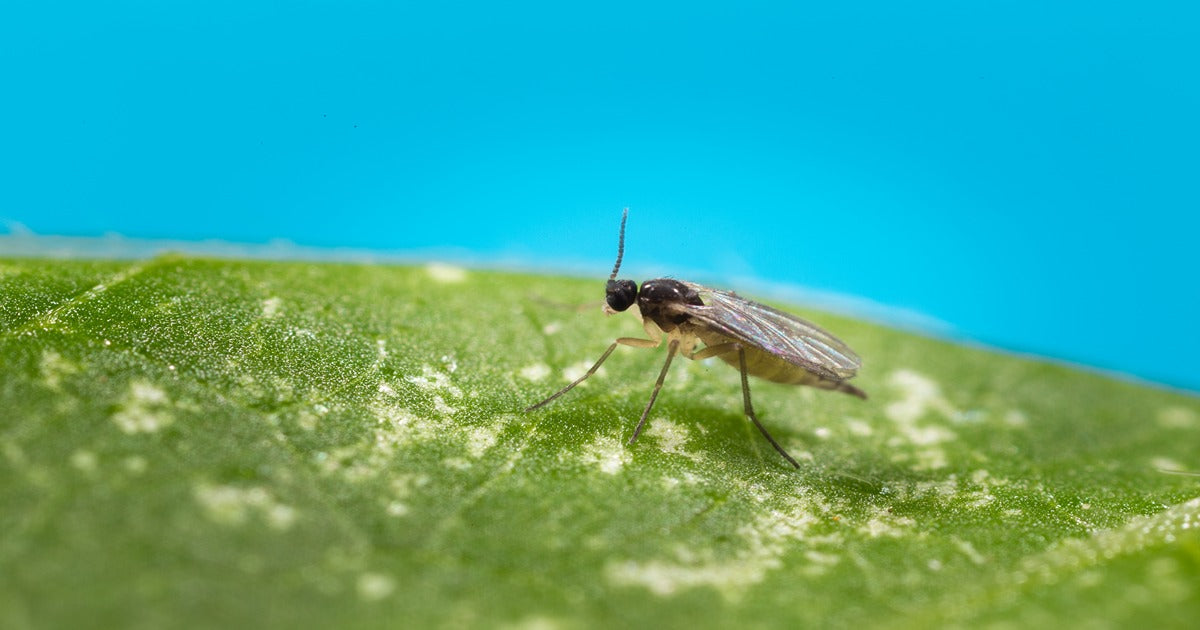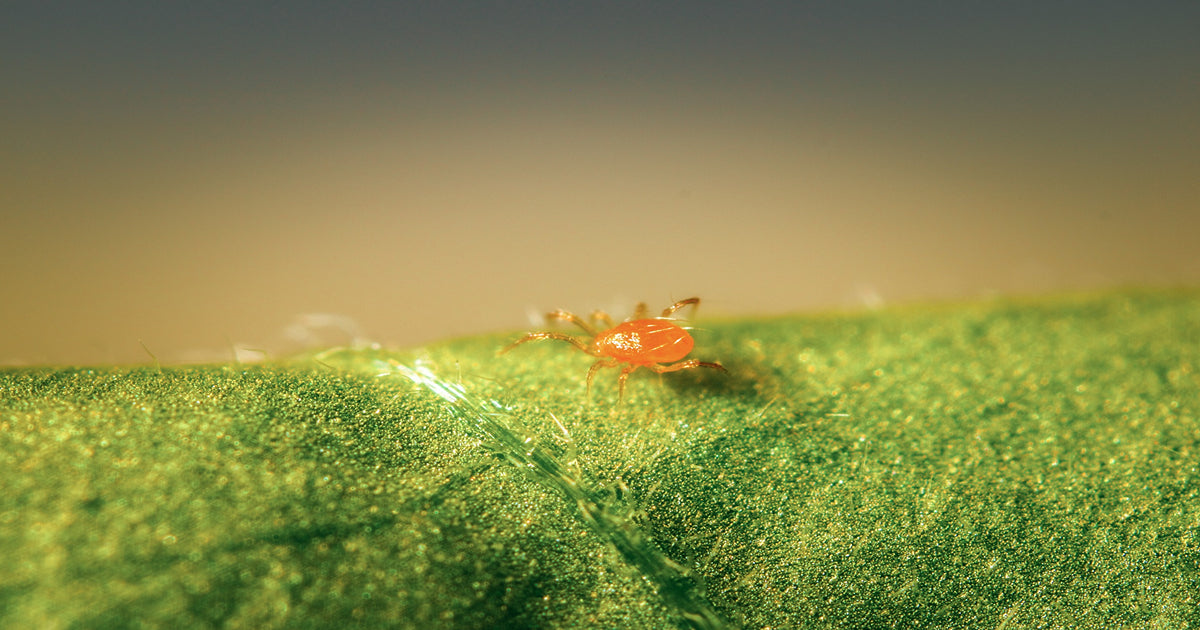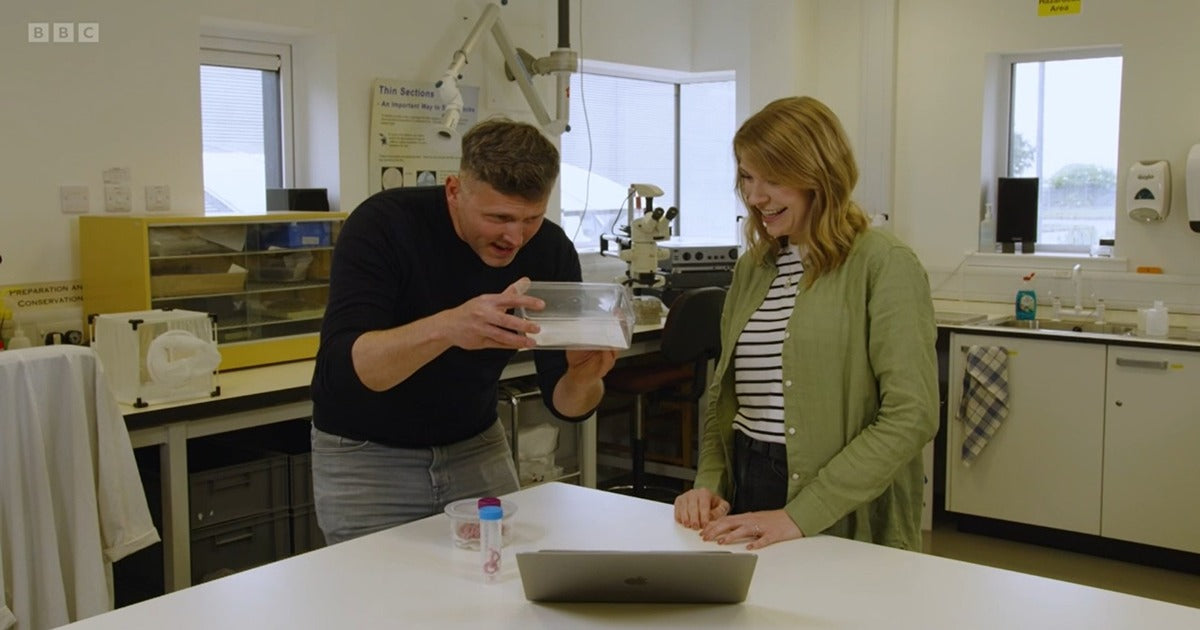
House Plant Pest Series - Issue 1: Fungus Fly
Welcome to our new House Plant Pest Series where we will release a number of dedicated blogs on common house plant pests throughout the year. The first issue regards Fungus Flies, a pest that is currently highly prevalent in homes across the U.K.
Fungus Fly are primarily a nuisance pest but can damage plants if allowed to build up in large numbers. The larvae of the flies sit in compost, or soil, and feed on plant roots. This can weaken plants and, in severe cases, kill young plants. Fungus Fly can also spread a number of plant diseases.
The adult flies are small and dark in colour. They are more of a nuisance than they are damaging, and can be particularly annoying when they fly upwards from plants in high numbers.

Fungus Fly Larvae feed on plant roots, and are capable of killing young plants if left untreated.
Overwatering Plants Can Lead To Infestations
Fungus Fly are attracted to organic matter and compost. They especially thrive in wet soil or compost, so overwatering plants can encourage infestations and bolster their populations. Ensuring not to overwater is therefore the first step to take in reducing their numbers.
The removal of peat composts to more organic based composts has been a positive move for the environment, but the new organic based composts do also attract more Fungus Fly, which enjoy feeding on organic matter. This has led to a general increase in the activity of this particular pests for many people growing house plants.

Overwatering, and the popularity of organic composts, has contributed to a growth in Fungus Gnat numbers for house plant owners across the U.K.
How To Combat Fungus Gnats:
Sticky Insect Traps
The use of small sticky traps, such as our House Plant Traps, are useful tools to catch the first adult Fungus Flies, and also to provide an early warning of their presence. It is important to replace the traps if they become full of flies, or become covered in dirt and debris. Once adult flies are observed then it is time to introduce some natural, biological pest control...
Dragonfli supply a range of sticky traps to catch adult Fungus Fly, including some smaller traps for house plants such as these Mini Tulip Sticky Traps
Nematodes
Natural enemies of Fungus Fly can be used to control the larval stage of its life cycle. By killing the larvae of the fly, the life cycle of the pest is broken and as such no more adult flies will appear. The best way to accomplish this is with the use of the nematodes contained within our Fungus Fly Killer.
Dragonfli's Fungus Fly Killer Nematodes provide the perfect solution to Fungus Fly infestations.
These tiny microscopic worms are watered into the compost that the plants, or seedlings, are growing in. They then actively seek out, infect, and kill the Fungus Fly larvae in the compost. This is the quickest and most effective form of biological control of Fungus Fly. These nematodes are totally harmless to humans, pets and the environment, and provide a safe natural solution in the home for Fungus Fly control.

The microscopic nematodes contained within Fungus Fly Killer will seek out, infect, and kill Fungus Fly larvae. The nematodes will die out naturally once infestations are contained.
A few tips to help create the best conditions for the nematodes include:
- Make sure the compost is moist before application, as the nematodes need to be able to move through the compost.
- Ensure to apply the nematodes with plenty of water, but not an excessive amount.
- Avoid applying in very bright conditions as the nematodes are UV sensitive.
- Normally one application of Fungus Fly Killer is sufficient to kill most Fungus Fly larvae but large infestations may require further treatments.
Predatory Mites

Predatory mites such as the Macrocheles robustulus can be used for the control of Fungus Fly.
Certain predatory mites can also be applied to the surface of the house plant compost, and can provide a very useful additional control of Fungus Fly. These tiny predatory mites feed on the small Fungus fly larvae they locate on top of, and just under, the compost surface. The most effective predatory mite to apply against Fungus Fly is called the Macrocheles robustulus, also known as Mighty Mite.
Mighty Mite can be purchased directly from Dragonfli in three unit sizes. Click here to purchase yours.
Nematodes can also be safely applied in combination with soil borne predatory mites.
For More Information On Fungus Gnats Read 'A Gardener's Guide To Biological Control'
For more details on how to combat Fungus Gnats, visit our dedicated website page here.
Alternatively, consider purchasing our new 'A Gardener's Guide To Biological Control' book, written by Dragonfli founder, and expert, Julian Ives. The book is available here.
'A Gardener's Guide To Biological Control' contains some fascinating insights into the activity of a range of insect pests, including Fungus Fly, and explains the best techniques and controls available to combat them.








